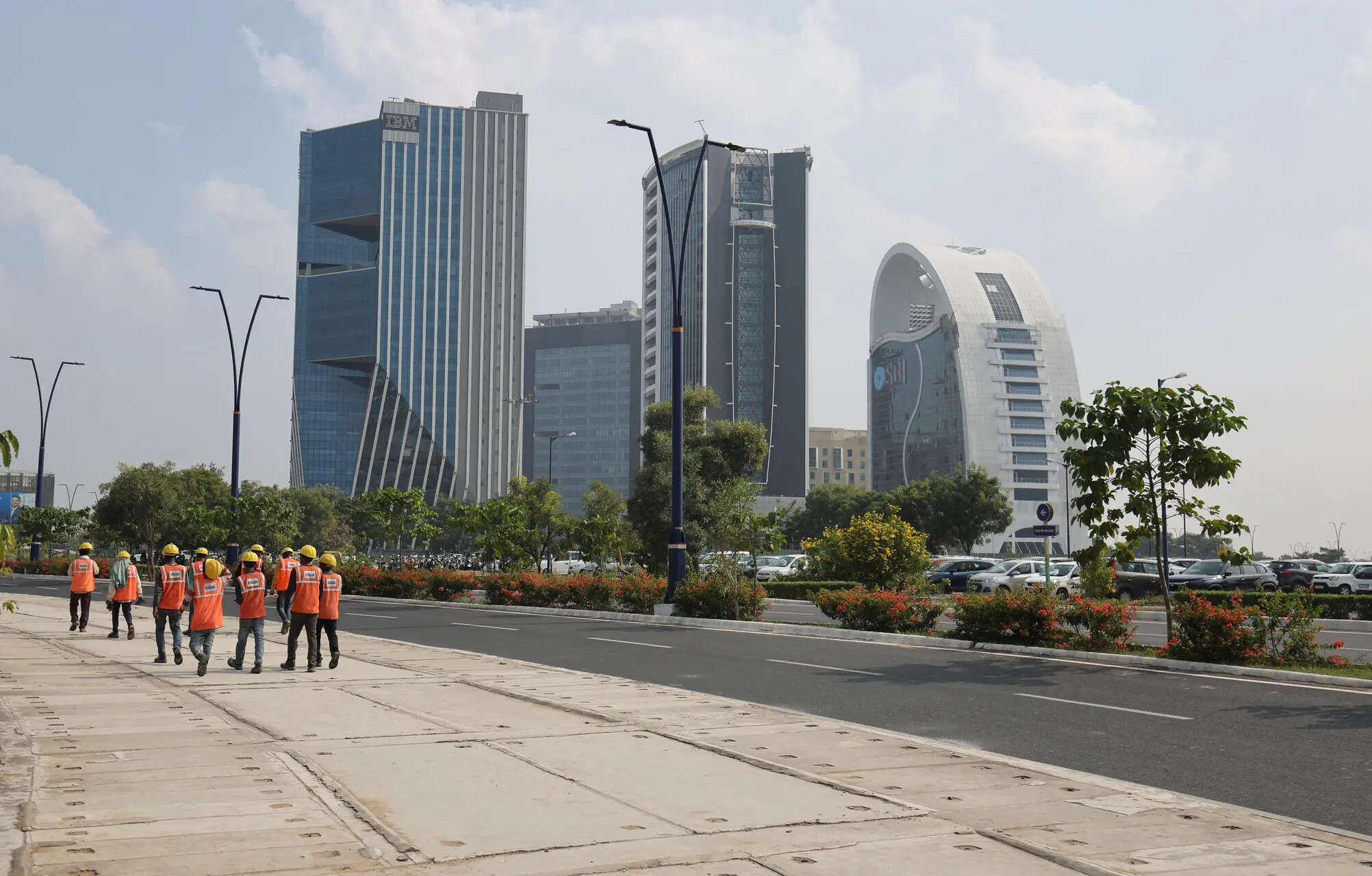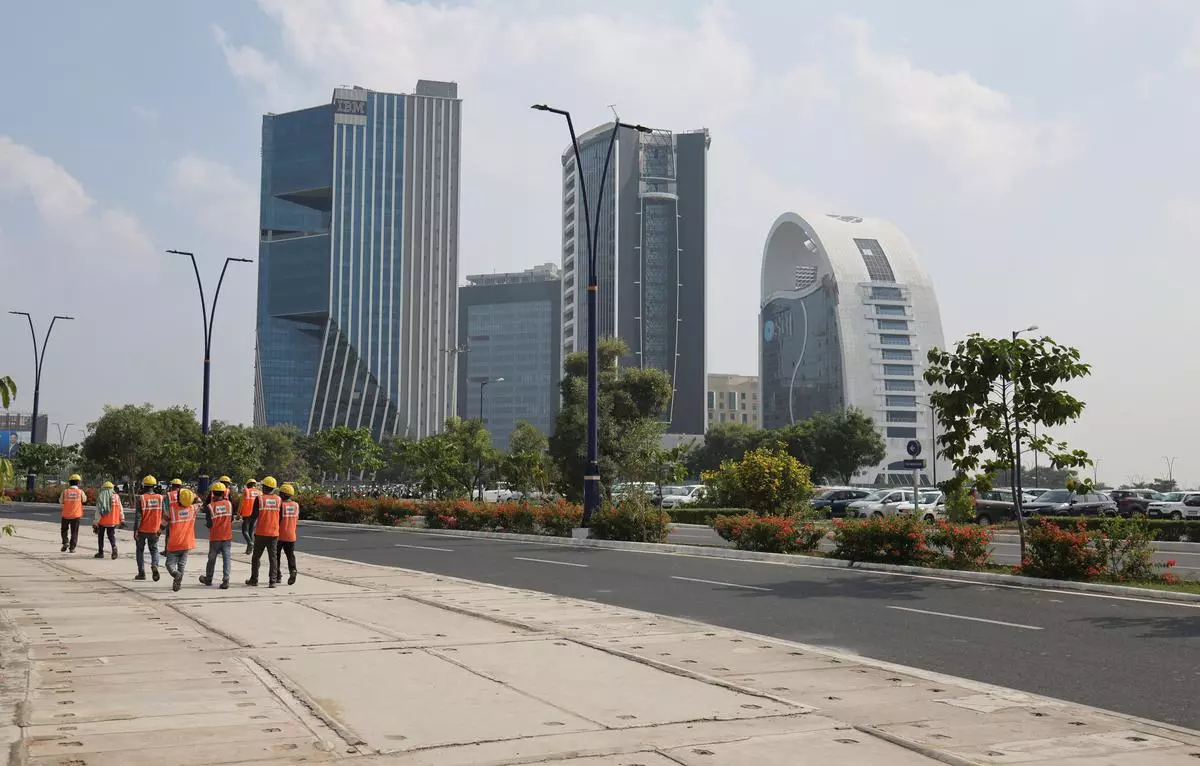Last Updated on: 22nd July 2025, 04:41 pm
Contents
- 1 The Rise of Insurance sector business in GIFT City
- 2 What are IIOs in GIFT City?
- 3 Benefits of Setting Up an IIOs in GIFT City
- 4 The IIO Regulations: A Streamlined Framework for Insurance in GIFT City
- 5 Who Can Become an IIOs?
- 6 Existing Insurance and Reinsurance Businesses
- 7 New Applicants
- 8 The Choice of Structure: Incorporated vs. Unincorporated IIOs
- 9
- 10 Permitted Business Activities for IIOs: Catering to Diverse Insurance Needs
- 11 The Evolving Landscape of Reinsurance Opportunities for IIOs: The Order of Preference
- 12 Fostering Growth in GIFT City’s Insurance Sector
- 13 A Flourishing Future for Insurance in GIFT City
The Rise of Insurance sector business in GIFT City
GIFT City, a visionary project spearheaded by the Indian government, is more than just a financial hub. It’s a meticulously planned smart city built from the ground up, boasting state-of-the-art infrastructure and a focus on cutting-edge technology. This creates an ideal environment for global financial institutions to establish a presence and seamlessly conduct business.
Within GIFT City lies a crucial component – the International Financial Services Centre (IFSC). This specialized zone caters specifically to financial services, attracting both domestic and international players. Originally, entities like insurance companies operated under their existing regulators. However, to streamline oversight and create a dedicated framework, the International Financial Services Centres Authority (IFSCA) was formed in 2020. This unified regulator allows for smoother operations and paves the way for further growth.
The IFSCA has played a key role in propelling the insurance sector forward in GIFT City. With the introduction of the IFSCA (Registration of Insurance Business) Regulations in 2021, a clear path has been established for insurers and reinsurers to set up shop within the city. These entities, known as IFSC Insurance Offices (IIOs), enjoy the unique advantage of conducting business in freely convertible foreign currencies, all within India’s borders.
What are IIOs in GIFT City?
Imagine a world of insurance specifically designed for international businesses and global citizens. That’s the realm of IFSC Insurance Offices, or IIOs for short. Set up within GIFT City, India’s international financial hub, IIOs offer a unique set of advantages for both insurance companies and policyholders. In the following sections, we’ll delve deeper into what IIOs are, the types of insurance they can offer, and how they’re transforming the insurance landscape in India. So, buckle up and get ready to explore the exciting world of IIOs!
Benefits of Setting Up an IIOs in GIFT City
- Access Global Markets & Enhanced Risk Management: Operate in freely convertible foreign currencies and access a wider range of reinsurance options. This powerful combination allows IIOs to tap into international clients and transactions while effectively managing risk exposure across global markets.
- Tax Advantages: Enjoy significant tax benefits, including a 10-year tax holiday which translates to substantial cost savings and increased profitability, making setting up an IIO a financially attractive proposition.
- Operational Efficiency: Benefit from a streamlined regulatory environment under the centralized authority of the IFSCA. This simplifies procedures and expedites business operations, reducing administrative burdens and allowing for faster decision-making.
The IIO Regulations: A Streamlined Framework for Insurance in GIFT City
The introduction of the IFSCA (Registration of Insurance Business) Regulations 2021, or IIO Regulations, in October 2021, marked a significant step forward for insurance in GIFT City. These regulations replaced the previous IRDAI IIO Guidelines, establishing a unified and streamlined framework for entities seeking to register as IIOs.
Who Can Become an IIOs?
The IIO Regulations clearly define the types of entities eligible to establish themselves as IIOs within GIFT City. This broader eligibility opens the door for a wider range of players to participate in the growing insurance market.
Eligible entities to register as IIOs in GIFT City:
| Applicant | Permitted Structure | Additional Conditions |
| Insurer registered with the IRDAI | Branch office | Prior IRDAI No-Objection Certificate (“NOC”) |
| Foreign insurer / Foreign Reinsurer / Managing General Agent / Lloyd’s | Branch office | Registration of the entity in its home country* and a NOC from the home country regulator |
| Branch office of a foreign insurer or Lloyd’s society registered with IRDAI | Branch office | Registration of the entity in its home country* and a NOC from the home country regulator |
| Indian Public Company /
Wholly owned subsidiary of a foreign or Indian insurer or reinsurer | Incorporated under the Companies Act, 2013 | – |
| Insurance Co-operative Society registered under the Co-operative Societies Act, 1912 | Co-operative society registered under the Co-operative Societies Act, 1912 | – |
| Body corporate incorporated outside India not in the nature of a private company | Establish its place of business in an IFSC, under the provisions of the
Companies Act, 2013 | Registration of the entity in its home country* |
*The home country must be one that has signed a double taxation avoidance agreement with India.
Existing Insurance and Reinsurance Businesses
- Indian insurance companies and insurance co-operative societies already registered with the IRDAI.
- Foreign insurers and reinsurers with valid registrations from their home country regulators.
- Branch offices of foreign insurers or Lloyd’s India, provided they hold existing IRDAI registrations.
New Applicants
- Public companies incorporated under the Companies Act, 2013, functioning as wholly-owned subsidiaries of existing insurers or reinsurers (domestic or foreign).
- Bodies corporate incorporated outside India, excluding those classified as private companies. These entities can establish a public company subsidiary in India specifically for the purpose of registering an IIO.
- Managing General Agent (MGA) who has a valid binding agreement with a Foreign Insurer or Foreign Re-insurer
The Choice of Structure: Incorporated vs. Unincorporated IIOs
- Entities can choose between operating as:
- Incorporated IIOs: These function as public companies with a minimum paid-up capital as mandated by the Insurance Act, 1938. They are also subject to solvency margin requirements set by the IFSCA.
- Unincorporated IIOs: These are typically branch offices of existing insurance or reinsurance entities. Their capital adequacy requirements are determined by the regulations of their home country.
Permitted Business Activities for IIOs: Catering to Diverse Insurance Needs
The IIO Regulations offer IIOs flexibility in the types of insurance they can provide. However, there are some key distinctions to consider:
A Broad Spectrum of Insurance Products: Registered IIOs can engage in a wide range of insurance activities, encompassing the four main categories:
- Life Insurance: Products that provide financial security in events like death, disability, or retirement.
- General Insurance: Covers a variety of risks, such as property damage, vehicle accidents, and business disruptions.
- Health Insurance: Provides financial support for medical expenses and hospitalization costs.
- Reinsurance: Offers insurance to existing insurance companies (cedants) to help them manage their risk exposure.
Home Country Registration and Business Scope:
It’s important to remember that the type of IIO registration plays a role in determining permissible business activities:
- “Place of Business” Registration: IIOs established as “a place of business of an Indian insurer or a branch office of a foreign insurer or reinsurer” are limited by their home country regulations. They can only transact business in the categories authorized by their home country’s regulatory body.
Direct Insurance vs. Reinsurance Activities:
The IIO Regulations differentiate between direct insurance and reinsurance activities for IIOs:
- Direct Insurance Business: IIOs registered as direct insurers can offer insurance products directly to individuals or entities. However, there are geographical limitations:
- They can operate within the IFSC and other SEZs.
- They can also offer coverage to clients outside India.
- They are strictly prohibited from directly insuring individuals or entities in mainland India (outside SEZs).
- Reinsurance Activities: IIOs registered as reinsurers can participate in risk management by accepting reinsurance business from:
- Cedants based in the IFSC.
- Clients from outside India.
- Indian insurers, but with a caveat. The IRDAI’s order of preference dictates which Indian insurers must first offer reinsurance opportunities to domestic reinsurers before seeking coverage from international players like IIOs.
The Evolving Landscape of Reinsurance Opportunities for IIOs: The Order of Preference
The IRDAI (Reinsurance) Amendment Regulations 2023 mark a significant development for IIOs seeking to participate in the Indian reinsurance market. This amendment specifically addresses the order of preference, a crucial factor determining which reinsurers Indian cedants (insurance companies seeking reinsurance) can approach.
The Previous Order of Preference
Before the 2023 amendment, the order of preference placed IIOs at a disadvantage. Indian cedants were required to first offer reinsurance opportunities to the General Insurance Corporation of India (GIC Re), the domestic reinsurer, followed by other Indian reinsurers and then Foreign Reinsurance Branches (FRBs). Only after exhausting these options could cedants approach IIOs. This limited the ability of IIOs to compete for reinsurance business from Indian companies.
The Rise of IIOs: A Level Playing Field
The recent amendment elevates IIOs to a new position within the order of preference. They are now placed in the same category as FRBs, putting them just below GIC Re. This opens up a wider range of reinsurance opportunities for IIOs, allowing them to compete more effectively with established players.
Benefits for the Indian Insurance Market
This shift in the order of preference has several positive implications:
- Increased Competition: With more reinsurers vying for business, Indian cedants can potentially benefit from more competitive pricing and terms.
- Enhanced Risk Management: A wider pool of reinsurers allows Indian insurers to better manage their risk exposure by spreading it across a more diverse range of participants.
- Growth of the Reinsurance Market: The increased participation of IIOs can contribute to the overall growth and dynamism of the Indian reinsurance market.
Operational Considerations for IIOs
Establishing an IIO in GIFT City involves navigating specific operational requirements. Here’s a quick rundown of some key points to keep in mind:
- Currency Freedom: A major benefit for IIOs is the ability to conduct their business in freely convertible foreign currencies. This allows them to cater to a global clientele and transact internationally without being restricted to the Indian Rupee.
- Capital Adequacy: The IIO Regulations establish minimum capital requirements to ensure financial stability. The specific amount depends on the IIO’s structure:
Branch offices require an earmarked assigned capital of USD 1.5 million.
Incorporated IIOs, functioning as public companies, must maintain a paid-up capital as mandated by the Insurance Act, 1938.
Fostering Growth in GIFT City’s Insurance Sector
The IIO Regulations establish a strong foundation for IIOs, but it doesn’t stop there. The IFSCA has issued a series of additional regulations to ensure smooth operations and protect policyholders. These include:
-
- IFSCA (Re-Insurance) Regulations 2023: This regulation establishes a framework for reinsurance activities conducted by IIOs in GIFT City.
- IFSCA (Insurance Products and Pricing) Regulations, 2022: This regulation outlines product approval processes and pricing guidelines for IIOs. It ensures transparency and consumer protection while allowing for innovative product offerings.
- IFSCA (Appointed Actuary) Regulations, 2022: This regulation mandates the appointment of qualified actuaries to assess risk and ensure solvency. This promotes financial stability within the IIO ecosystem.
- IFSCA (Manner of Payment and Receipt of Premium) Regulations, 2022: This regulation establishes clear guidelines for premium collection and settlement, streamlining financial transactions for both IIOs and policyholders.
- IFSCA (Investment by International Financial Service Centre Insurance Office) Regulations, 2022
A Flourishing Future for Insurance in GIFT City
The comprehensive framework established by the IFSCA, coupled with the operational considerations outlined earlier, positions GIFT City as a highly attractive destination for IIOs. Here’s a glimpse into the promising future:
- Increased Market Participation: The recent amendments to the order of preference and the overall ease of doing business will likely incentivize more domestic and international players to establish themselves as IIOs. This will foster a dynamic and competitive insurance market within GIFT City.
- Enhanced Product Innovation: With greater flexibility in product design and pricing, IIOs can cater to a wider range of insurance needs, particularly for niche markets and high-value segments. This will lead to a more diverse and innovative insurance landscape.
- Boosted International Connectivity: GIFT City has the potential to become a global insurance hub, connecting Indian and international insurers and reinsurers. This will not only benefit the Indian insurance market but also contribute to the overall growth of the Asian insurance sector.
In conclusion, the IIO framework, along with the supportive regulatory environment, paints a bright picture for the future of the insurance sector in GIFT City. It’s poised to become a key player in the global insurance landscape, offering a robust and innovative platform for both established and emerging insurance players
We Are Problem Solvers. And Take Accountability.
Related Posts


AIF in GIFT City IFSC- Structures, Regulations, Benefits
AI Summary The growth of Alternative Investment Funds (AIFs) in…
Learn More





GIFT City Business Opportunities – A Deep Exploration
AI Summary GIFT City (Gujarat International Finance Tec-City) is India’s…
Learn More





GIFT City Ecosystem for Startups – A Complete Guide in 2026
AI Summary GIFT City, India's first International Financial Services Centre…
Learn More














